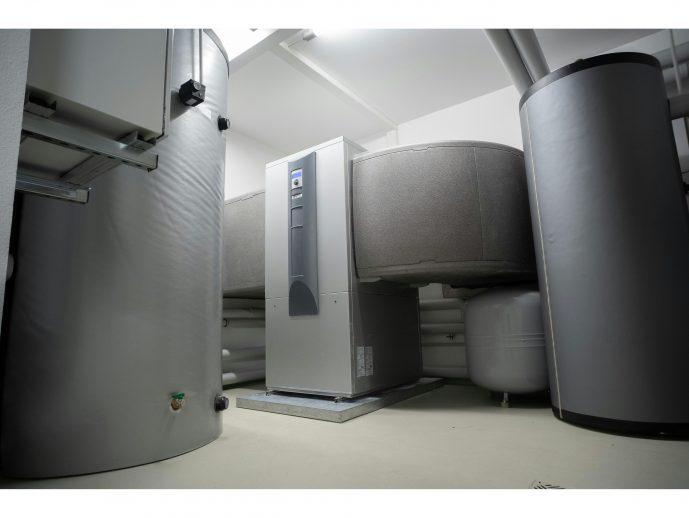Categories more
- Adventures (17)
- Arts / Collectables (15)
- Automotive (37)
- Aviation (11)
- Bath, Body, & Health (77)
- Children (6)
- Cigars / Spirits (32)
- Cuisine (16)
- Design/Architecture (22)
- Electronics (13)
- Entertainment (4)
- Event Planning (5)
- Fashion (46)
- Finance (9)
- Gifts / Misc (6)
- Home Decor (45)
- Jewelry (42)
- Pets (3)
- Philanthropy (1)
- Real Estate (16)
- Services (23)
- Sports / Golf (14)
- Vacation / Travel (59)
- Watches / Pens (14)
- Wines / Vines (24)
- Yachting / Boating (17)
Understanding Heat Pump Lifespan and Replacement Timing
Published
08/10/2025As homeowners increasingly seek energy-efficient solutions for heating and cooling, heat pumps have emerged as a popular choice. These systems not only provide comfort but also contribute to lower energy bills and reduced carbon footprints. However, like any mechanical system, heat pumps have a finite lifespan. Understanding how long these systems typically last and when to consider replacement is crucial for maintaining a comfortable and efficient home environment.
The Lifespan of Heat Pumps
Heat pumps are designed to last longer than traditional heating systems, often providing reliable service for 15 to 20 years. However, several factors can influence this lifespan, including the type of heat pump, installation quality, maintenance practices, and local climate conditions. For a deeper dive into the lifespan of modern home heating systems, you can check out the link.
Types of Heat Pumps
There are several types of heat pumps, each with its own expected lifespan:
- Air Source Heat Pumps: These are the most common type and typically last around 15 years. They extract heat from the outside air, making them efficient in moderate climates.
- Ground Source (Geothermal) Heat Pumps: These systems can last up to 25 years or more. They utilize the stable temperatures of the ground, which allows for greater efficiency and longevity.
- Water Source Heat Pumps: Similar to ground source systems, these can also have a long lifespan, often exceeding 20 years, depending on the water source's quality and temperature stability.
Factors Affecting Lifespan
1 Installation Quality: A poorly installed heat pump can lead to inefficiencies and premature failure. It’s essential to hire qualified professionals who understand the specific requirements of your home and the heat pump system.
2 Regular Maintenance: Just like any other appliance, heat pumps require regular maintenance to operate efficiently. This includes cleaning filters, checking refrigerant levels, and ensuring that the outdoor unit is free from debris. Neglecting maintenance can significantly shorten the lifespan of your system.
3 Climate Conditions: Extreme weather can put additional strain on heat pumps. In regions with harsh winters or scorching summers, the system may work harder, potentially leading to earlier wear and tear.
4 Usage Patterns: How often and how intensively you use your heat pump can also impact its lifespan. Systems that are used year-round may experience more wear than those that are only used seasonally.
Signs Your Heat Pump Needs Replacement
Recognizing when it’s time to replace your heat pump can save you from unexpected breakdowns and costly repairs. Here are some key indicators:
Decreased Efficiency
If you notice a significant increase in your energy bills without a corresponding change in usage, your heat pump may be losing efficiency. This could be due to age, wear, or a need for maintenance.
Frequent Repairs
If you find yourself calling for repairs more often, it may be a sign that your heat pump is nearing the end of its lifespan. While minor repairs are normal, frequent issues can indicate that the system is failing.
Inconsistent Temperatures
If certain rooms in your home are consistently too hot or too cold, it may be a sign that your heat pump is struggling to maintain a comfortable environment. This inconsistency can stem from a variety of issues, including ductwork problems or a failing compressor.
Age of the System
As mentioned earlier, heat pumps typically last 15 to 20 years. If your system is approaching this age, it’s wise to start considering replacement options, even if it seems to be functioning well.
Benefits of Upgrading Your Heat Pump
If you decide that it’s time to replace your heat pump, you may be surprised by the benefits of upgrading to a newer model. Modern heat pumps are more efficient, quieter, and often come with advanced features that enhance comfort and convenience.
Improved Energy Efficiency
Newer models are designed with advanced technology that allows them to operate more efficiently. This can lead to significant savings on your energy bills and a reduced environmental impact.
Enhanced Comfort Features
Many modern heat pumps come equipped with smart technology that allows for better temperature control and scheduling. This means you can customize your home’s climate to suit your lifestyle, ensuring comfort when you need it most.
Increased Home Value
Upgrading to a new heat pump can also increase your home’s value. Potential buyers often look for energy-efficient systems, and having a modern heat pump can make your home more attractive on the market.
Conclusion
Understanding the lifespan of your heat pump and recognizing the signs that it may need replacement are essential for maintaining a comfortable and efficient home. By staying informed and proactive, you can ensure that your heating and cooling system continues to serve you well for years to come. Whether you’re considering a replacement or simply want to extend the life of your current system, regular maintenance and awareness of your heat pump’s performance are key. With the right approach, you can enjoy the benefits of a reliable and efficient heating solution.















